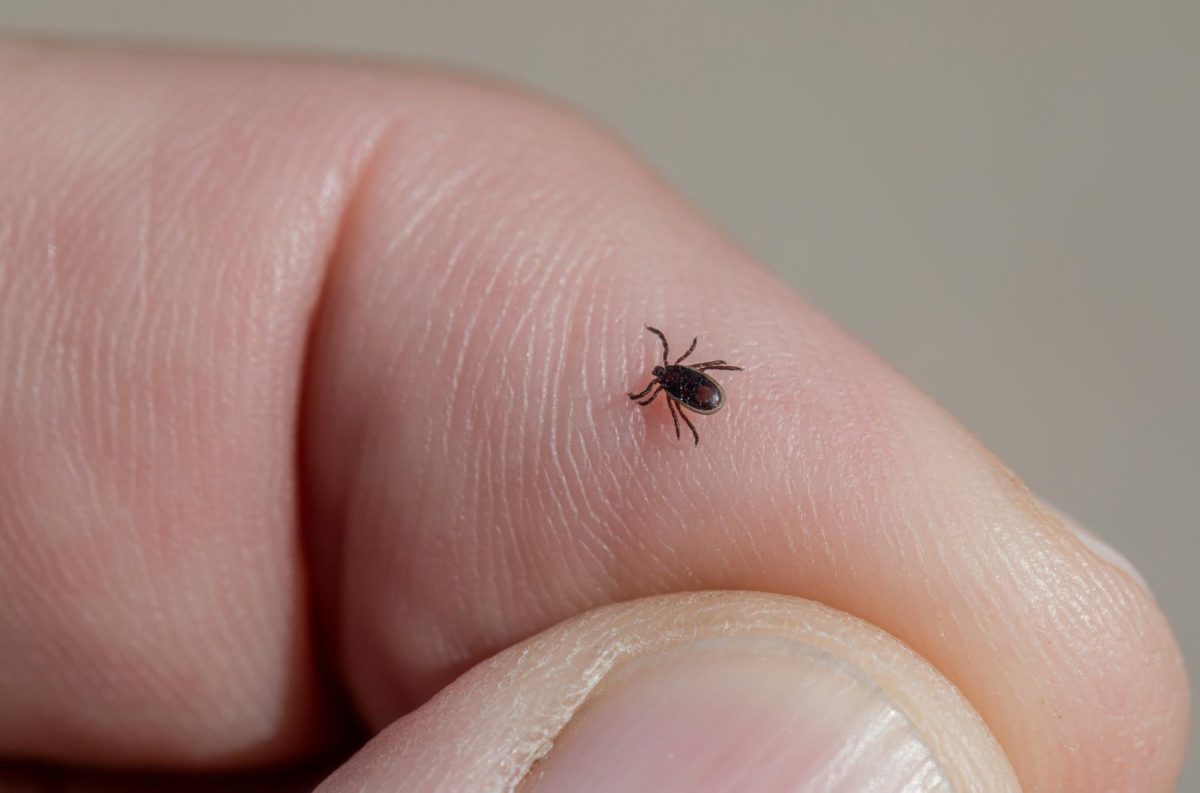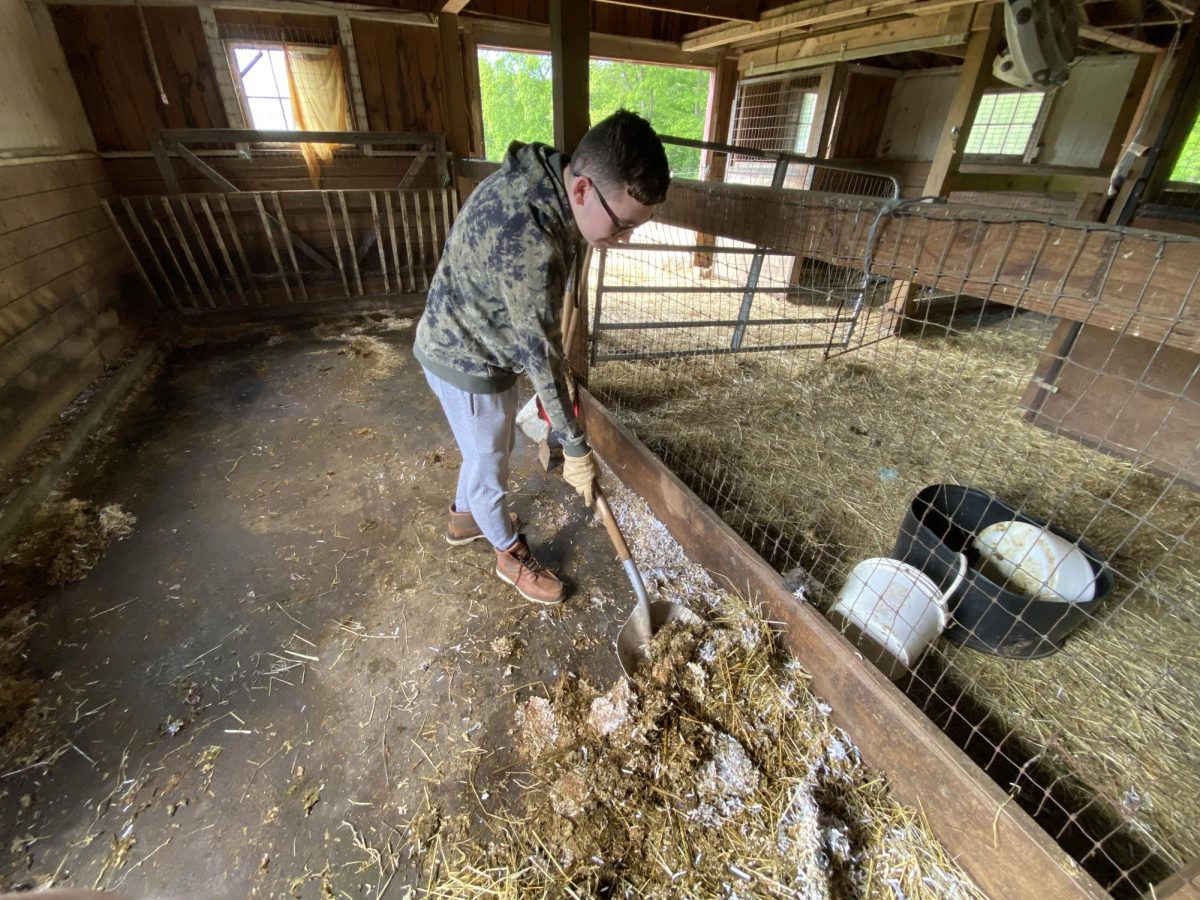WOODBURY — As spring is finally here, so is something else: the return of tick-borne illnesses. Well, it never really ever went away due to the severely mild winter.
Ticks.
These pests have been crawling around this earth for over 90 million years, and now these pests are worse than before. After coming from a near-snowless winter, a mild New England winter brings ticks that carry parasites and Lyme disease.
According to the American Pest Solutions, a mild winter means “ticks don’t ‘hibernate.’ That means when temperatures are warm enough, even in the dead of winter, they will be active. In a warm winter, like the one we just had, ticks have more opportunities to breed. This increases the chances of pets and people picking up ticks this spring.”
Ticks can be very dangerous; once they bite you have 48-72 hours before parasites and diseases can be transmitted.
“I had extreme exhaustion for a week before I found out and I had back and neck pain, too,” said Samantha Kostka, a Nonnewaug High School junior. “Most people have red bull’s-eyes around the spot where the tick bit them, but I didn’t, which is why I didn’t know until a week later.”
Other symptoms that can be identified with tick bites can include muscle or joint aches, stiff neck, headache, weakness, fever, swollen lymph nodes, and other flu-like symptoms.
Ticks have always been an issue, but now it seems as though they are worse than ever. Still, this does not mean you run out to buy harmful chemicals to keep them away.
Many will turn to Heartgard, Nexgard, or a Seresto collar for their animals to help guard against Lyme disease.
According to Penn Live, “the bogus collars not only might not protect your pet from fleas and ticks. They could be manufactured with harmful ingredients that can sicken pets — even causing chemical burns on the pet’s skin.”

If a Seresto collar isn’t bought from a veterinary hospital, they are known to be knock offs and cause mild to severe skin issues among other issues. Now although this does help it isn’t 100% which is why getting the Lyme vaccine for animals is a great step for preventing Lyme disease.
“Because people see collars as an over the counter medication they equate it to surgical grade aspirin,” Kathleen Gorman, an agriculture production teacher at NHS, said. “Someone may not know anything about it and Seresto collars may not be the easiest medication to manage and should consult a professional, my sister actually ended up buying one of the collars and it burnt her dogs skin badly because she did not consult a professional.”
In a recent Sierra Club article, “throughout the country, public health experts are ringing alarm bells about rising cases of tick-borne illnesses. Experts point to climate change as a key factor driving range expansion, increasing abundance, and lengthening periods of activity for ticks.”
Ticks are at an all-time high and they are only going to increase their population. Not one person is immune to Lyme disease and we need to be more careful than ever with making sure our animals have some sort of preventative along with us being more cautious when it comes to being outside.
Some may think that just spraying pesticides for ticks is enough but nothing is 100% and just simply walking through a yard can cause a tick to jump on clothes and now, it’s on you.
“Last year I did a one mile walk with my dog,” Jennifer Jedd, a veterinary science teacher, said. “I was on a typical road. Yes, there was grass but it wasn’t a forest, and I lost count after 32 ticks I had to pull off my dog, we need to be careful.”
Although Lyme disease can only be spread by the black legged tick and the deer tick, it’s not just Lyme disease that can be spread. Some of the most common tick-borne diseases in the United States include Lyme disease, babesiosis, ehrlichiosis, Rocky Mountain spotted fever, anaplasmosis, southern tick-associated rash illness, tick-borne relapsing fever, and tularemia.
“Make sure to rotate preventative products because ticks and pests can become immune to them and the problem will become right back,” said Jesse Hungerford, a veterinary science teacher. “A cycle of different products needs to be used.”
Using livestock is a great way to protect against ticks with raising chickens, turkeys, or ducks. As they become a natural food source to livestock allowing you to benefit from the decrease of the population and them to use their basic instinct in hunting for ticks, allowing for enrichment.
“Need to learn how to live with the problem, there are natural ways to deal with ticks such as chickens instead of using sprays that cause more harm than good and kill off the good insect population,” Jedd said. “We need to develop ways to live with the issue because it is not going away, be aware, and do tick checks.”











